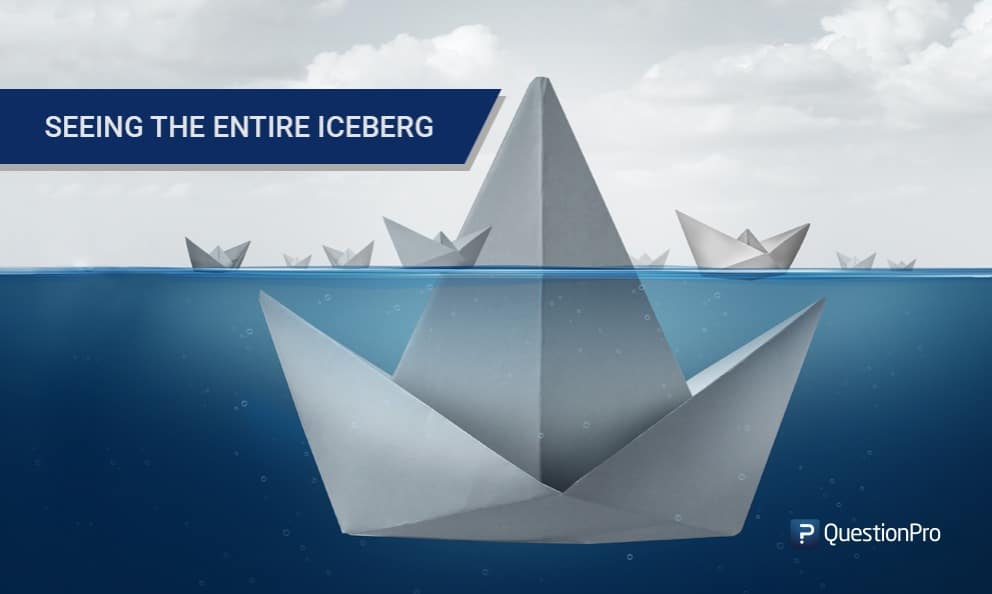 Reading Time: 2 minutes read
Reading Time: 2 minutes readIn the 80s, Sidney Yoshida famously concluded that there was an “iceberg of ignorance” – the metaphor said that at the top of the organization, executives were only aware of 4% of the problems that were impacting the frontline workers. This finding was validated by numerous employees (and employers, even) who felt out of touch from one another and began to create systems that would work to close that gap. Systems of communication, research, and employee engagement.
In 2016, ThinkWay Strategies proposed that the “iceberg of ignorance” actually went both ways: not only were executives unaware of the challenges faced by frontline employees, frontline employees also didn’t know of the concerns and challenges that executives faced at the top. Discovering this gap actually helped open up an opportunity for employee engagement, offering every employee (regardless of company level) a shot at serving the company purpose if executives started involving all levels of staff in their challenges, as well.
Now the lens has widened so that organizations are trying to seeing the entirety of the multidimensional “iceberg” when it comes to addressing any company’s major challenges. And this again means facing ignorance from all sides – looking first for the problems that an organization needs to solve (and developing a robust and rich understanding of those problems first) and then also engaging everyone in the challenge of offering solutions to those problems. Some people are afraid that regarding problems and solutions on this behemoth scale will be daunting or dispiriting to participants, but the truth of the matter is – it’s actually beneficial to see the entire iceberg. Here’s why:
- Frontline staff feels engaged at all levels to come together to hear and weigh on issues that matter to them. They can uplevel their problems democratically and visibly.
- Executives can magnify their collective intelligence which helps in strategic problems solving as they gather a wealth of ideas to diversify their input and options.
- “Purpose” isn’t something that the elite have access to. Now everyone has the ability to impact an organization on equal footing, injecting their job with more meaningful purpose.
- Organizations maximize their resources because people aren’t defined entirely by their department or job description – they can access interest, skill sets, and talent from anywhere in an organization.
This list certainly isn’t exhaustive, but it describes a workplace that I’d enjoy working in. How about you? What systems are you building that helps you see the entirety of the iceberg?











